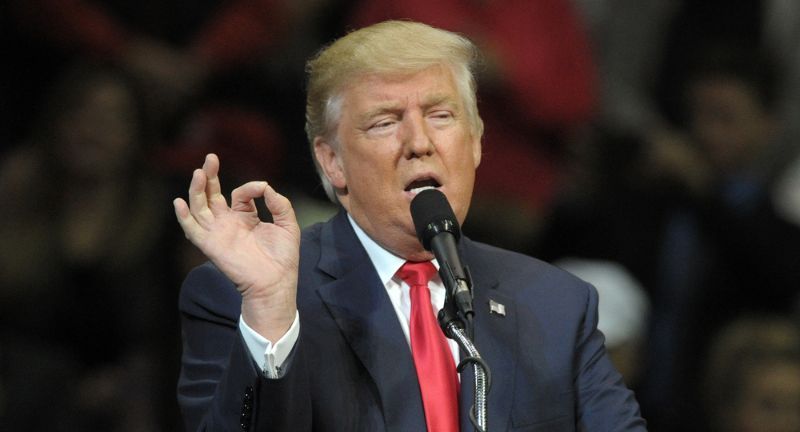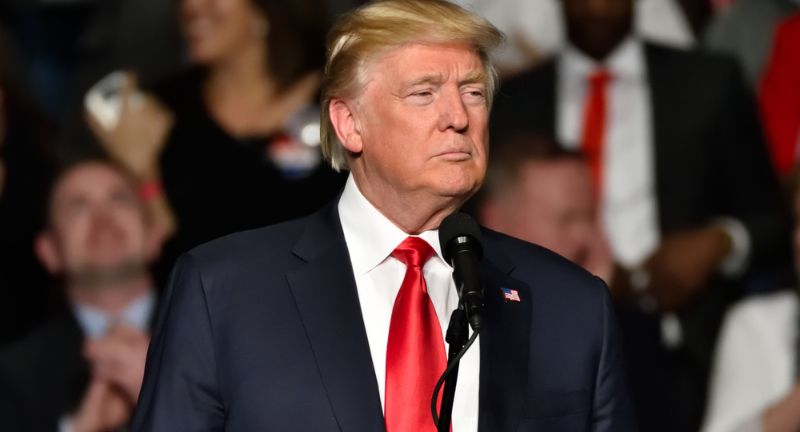NEWS
A Second Term Trump: What It Means for Social Security
Published
9 months agoon

Shutterstock
As speculation mounts over the potential return of Donald Trump to the presidency, questions swirl around the fate of one of America’s cornerstone programs: Social Security. With the program’s future solvency already under scrutiny, the prospect of a second Trump term injects uncertainty and concern into the hearts of millions who rely on this critical safety net. This analysis delves into twelve pivotal aspects of how another Trump presidency could reshape the landscape of Social Security, challenging assumptions and highlighting the stakes for retirees, disabled individuals, and future beneficiaries alike.
Investing in Alternative Solutions

Shutterstock
Trump’s focus on boosting economic growth and generating jobs can be seen as an indirect method to bolster Social Security. By increasing employment, payroll tax contributions may rise. Nonetheless, the success of this strategy hinges on continued economic prosperity.
Revised Methods for Benefit Calculations

Shutterstock
Under a Trump administration, potential changes to the calculation of benefits could lead to reduced future payouts. This could include modifying the adjustments for inflation or the calculations for wage growth.
Privatization Proposals

Shutterstock
Trump has previously considered the notion of partially privatizing Social Security. While this idea has not yet been put into action, a renewed effort toward privatization could potentially increase the risk associated with the retirement incomes of millions of Americans.
Past Proposals on Social Security

Shutterstock
In his first term, Trump aimed to safeguard Social Security but also suggested budget reductions that might influence its management. Critics contend that even though direct benefits were not directly targeted, cuts to administrative funding could affect the efficiency and quality of service delivery.
Concerns Over Disability Insurance

Shutterstock
The Trump administration had earlier suggested tighter eligibility requirements for Social Security Disability Insurance. Additional restrictions may further restrict access for some of the nation’s most vulnerable individuals.
Impact on Congressional Focus

Shutterstock
The leadership of President Trump has the potential to shape the legislative agenda in Congress, possibly diverting attention from strengthening Social Security. The historical hesitation among some Republican lawmakers to enhance Social Security might be reinforced, influencing legislative backing for the program.
COVID-19’s Effect on Social Security

Shutterstock
During the Trump administration, the COVID-19 pandemic had a major impact on the economy, which may have sped up the depletion of Social Security’s trust funds. A similar crisis in the future could put additional pressure on the program under comparable leadership.
Impact of National Debt on Social Security

Shutterstock
The fiscal policies under Trump’s administration, particularly the substantial tax cuts, have played a role in the increasing national debt. This growing debt may push future administrations to explore reductions in Social Security benefits as a potential solution.
Public Sentiment and Political Pressure

Shutterstock
Support for Social Security is consistently high among all political affiliations. During Trump’s presidency, significant public advocacy for the program may have discouraged efforts to implement policies that could be seen as weakening Social Security.
Proposed Changes to Retirement Age

Shutterstock
Debate continues over the idea of increasing the retirement age as a measure to sustain Social Security’s financial health. Although President Trump has not officially proposed this, backing from his administration could increase the likelihood of these changes being implemented.
Economic Policies and Social Security Funding

Shutterstock
Concerns have been raised about the long-term solvency of Social Security in light of economic policies, such as tax cuts, implemented during Trump’s administration. Critics argue that the reduction in federal revenue could result in the need for future cuts to entitlement programs, including Social Security, to manage the national deficit.
Concerns Surrounding Payroll Tax Cuts

Shutterstock
The proposal by Trump to abolish payroll taxes, which are crucial for financing Social Security, has sparked worries about the future stability of the program. While the plan is promoted as a way to increase workers’ take-home pay, it risks destabilizing the principal funding source for Social Security.
Conclusion

Shutterstock
Navigating the complex intersections of politics, policy, and economics, the potential effects of another Trump presidency on Social Security present a nuanced challenge that resists simple forecasting. With significant concerns regarding funding, solvency, and policy changes, the durability of Social Security will likely depend on the broader legislative environment, economic conditions, and public advocacy. As America stands at this pivotal moment, the future of Social Security under such leadership highlights the importance of informed discussion and proactive involvement from all stakeholders to protect this essential program for future generations.
More From Financially+
-


20 Savvy Tips to Keep Osteoporosis at Bay
-


23 Fun Facts You Never Knew About The Penny
-


22 Essentials From Trader Joe’s for Every Food Lover
-


17 Powerful Reasons You Should Make the Leap and Move…
-


25 Retirement Spots for Those Who Love the Great Outdoors
-


25 Expenses People Outgrow As They Age
-


25 Must-Do Activities Teens Should Embrace More Often
-


25 U.S. Cities Perfect for Car-Free Living
-


20 Reasons Why Liberal City Dwellers are Flocking to Idaho
